- Category
- Anti-Fake
As Toronto Film Festival Opens, Worldwide Backlash Against Trofimova’s “Russians at War”—a Documentary That Sees No Russian War Crimes in Ukraine—Grows
-70773e7f61e9a9268920e2211fd82549.png)
Russian-Canadian filmmaker Anastasia Trofimova premiered her film Russians at War at the Venice Film Festival, claiming it challenges Western media’s one-sided portrayal of Russian aggression. Trofimova wants to offer a different story, and it happens to be one in which she sees no war crimes committed by Russian soldiers.
Trofimova states she “saw no signs of war crimes during her time near the front” when questioned by a Reuters journalist about whether her film whitewashes Russian troops, given the documented atrocities such as the Bucha Massacre. Meanwhile, the Ukrainian Prosecutor General has launched investigations into over 122,000 suspected war crimes since Russia’s full-scale invasion, identified 511 perpetrators, and secured 80 convictions in Ukrainian courts.
Trofimova is taking her film to the Toronto Film Festival amid massive backlash, including from the Ukrainian government.
"In Russia, they are these heroes who never die,” she told reporters. “In the West, they are mostly war criminals, war criminals, war criminals.”
Filming illegally on Ukrainian territory
Trofimova spent seven months embedded with Russian soldiers in eastern Ukraine to make the film, doing so without authorization and in violation of Ukrainian law. With over a decade of media experience, she is known for producing films for the Russian propaganda outlet RT (formerly “Russia Today”).
Trofimova insists that Russian soldiers “are not someone whose voices are heard," emphasizing that the soldiers shocked her by "how ordinary they were,” with families, humor, and “their own understanding of what's happening in this war."
She claims that the soldiers simply don’t understand the reasons behind the war. Some cite answering their country’s call; some came to defend Russia from “NATO’s expansion.” Many are fighting primarily for money.
"They start to fight because they lost someone,” Trofimova muses. “It's maybe a question of revenge.”
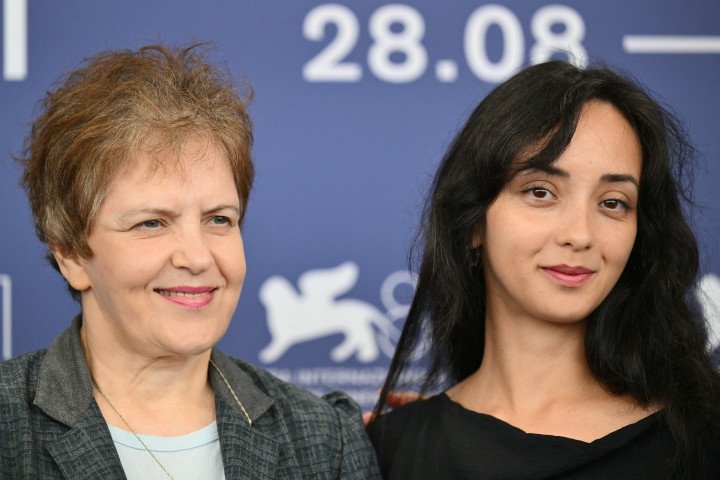
This isn’t the first time Russian soldiers have hidden behind a mask of innocence, avoiding the reality of having taken up arms, invading, raping, injuring, and killing the people of a neighboring country, soldiers and civilians alike. It may be shocking to see Russian soldiers being ordinary, but, perhaps, what’s more disturbing is that such heinous crimes seem to be normalized among ordinary people in Russia.
“This is my attempt to see through the fog of war and to see people for people,” said Trofimova.
Response from Ukrainian filmmakers
The Venice Film Festival also featured Songs of Slow Burning Earth, a documentary by Ukrainian director Olha Zhurba. This film captures the impact on Ukrainian society during the first two years of the full-scale invasion since February 2022. Zhurba criticized the Festival’s decision to screen the Russian film, saying that Russian filmmakers should “show the real face of the criminals of this war” rather than portraying them favorably, all while Russia keeps waging its war.
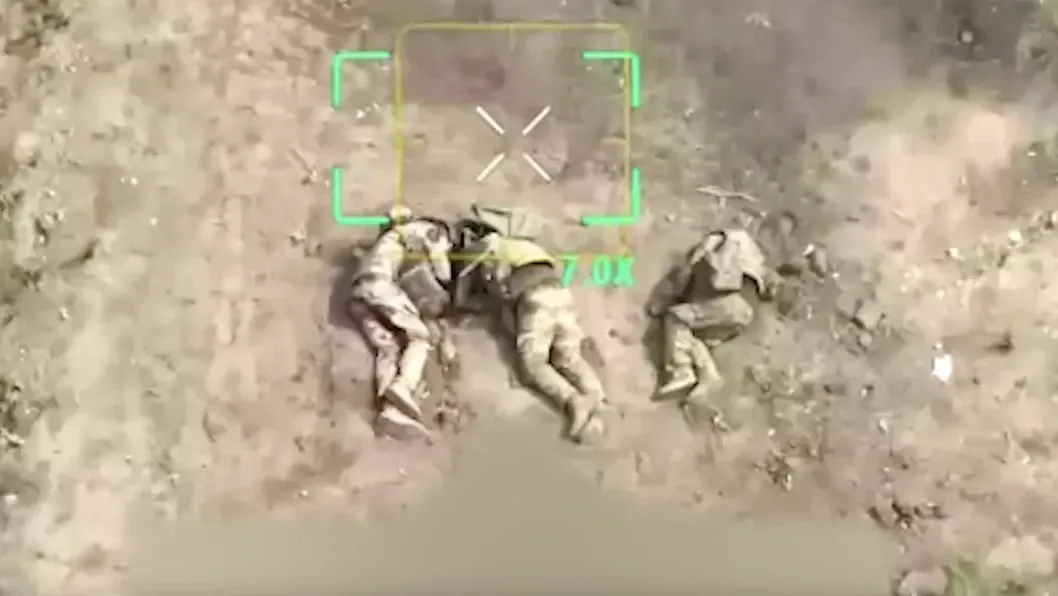
Trofimova dismissed the criticism, saying it was vital not to fuel the hatred further and instead seek common ground. At the same time, she voiced her disquiet at the ending of Zhurba’s documentary.
“It sort of contrasted Ukrainian kids and Russian kids, with Ukrainian kids thinking about what they can do to build a better Ukraine for the future, and Russian kids were just shown as marching and singing war songs,” she said. “I found this to be playing into that whole narrative that Russians, by definition, are these aggressive and awful people… you know that it’s in their blood to be this way.”
The Russian kids marching and singing war songs, however, is nothing new. Schools across Russia are increasingly militarized, with even young children in uniforms participating in drills. Meanwhile, kids as young as 9 or 10 are reportedly pressed into service, preparing care packages for troops invading Ukraine. But it doesn’t stop there: Russia’s systematic campaign to kidnap and indoctrinate Ukrainian children shows a chilling strategy of weaponizing childhood itself.
Trofimova’s own film shows only brief glimpses of actual combat, failing to convey the destruction Russia inflicted upon Ukraine.
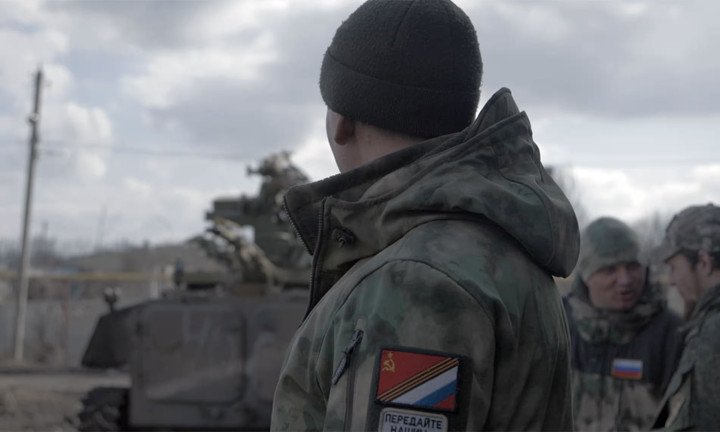
Darya Bassel, the producer of Songs of Slow Burning Earth, also criticized Russians at War on Facebook, describing it as “pure Russian propaganda.”
“The filmmaker begins by expressing her surprise at the Russian invasion of Ukraine in 2022,” she writes. “The filmmaker also states that her country hasn’t participated in wars for many years and that she has only read about wars in books.”
Ukrainian film director, Iryna Tsilyk, noticed the same problem.
“The author claims that Russia has not participated in wars for a long time, and that, as a child, war was something completely distant and abstract for her,” she said. “Russia’s wars in Chechnya, Georgia, Transnistria, and elsewhere did not exist for her.”
“In the end,” Bassel writes, “the filmmaker concludes that these are poor, ordinary Russian people who are being manipulated into war by larger political games. The filmmaker—like [Russian dictator Vladimir] Putin and his regime—plays an interesting game with these people. They deny them the simple ability to possess dignity and to think and decide for themselves.”
Trofimova currently resides outside her home country, "awaiting the government’s response."
"I still have many questions about how all this happened,” she said. “It’s clearly some kind of diplomatic failure. Any war is a failure of diplomacy. But I can say that ordinary people usually have no say in these matters.”
Canadian taxpayer money fueling Russian propaganda
Ukrainian Consul-General in Toronto, Oleh Nikolenko, has called for the Toronto International Film Festival (TIFF) to pull the documentary Russians at War from its lineup. In his letter to TIFF, Nikolenko condemned the festival for promoting a film that whitewashes Russian soldiers committing war crimes in Ukraine. He also criticized the Canadian government’s support for the documentary, including a $340,000 grant from the Canadian Media Fund, and raised concerns about Trofimova’s involvement with a Russian invading unit to shoot the film, stating it “grossly violates Ukrainian legislation.”
Scheduled to premiere at TIFF on September 10, the film has faced backlash from the Ukrainian Canadian Congress (UCC), which argues it undermines Ukrainian sovereignty and downplays the severity of the war.
“From the description of the movie offered on the TIFF website, it is clear that the movie equates the perpetrator and the victim, portraying Russia's genocidal war of aggression against Ukraine as ‘a nefarious game,’” the UCC said.
The statement that Russians at War reminds of “the human cost on both sides" is the moral equivalency of the “most disgraceful kind,” the UCC added.
“Whatever the ‘human cost’ borne by Russia—it is the fault of Russia,” the letter states. “It is, moreover, ridiculous to blame ‘propaganda’ or ‘the fog of war’ for the behavior of the Russians who invaded Ukraine.”

-3db1bc74567c5c9e68bb9e41adba3ca6.png)

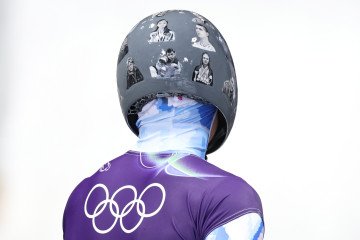
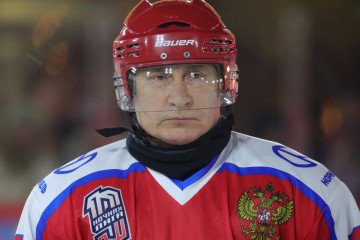
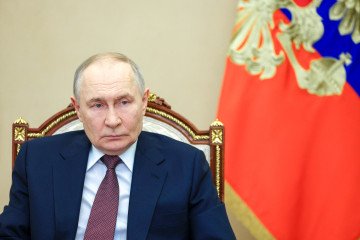
-f88628fa403b11af0b72ec7b062ce954.jpeg)